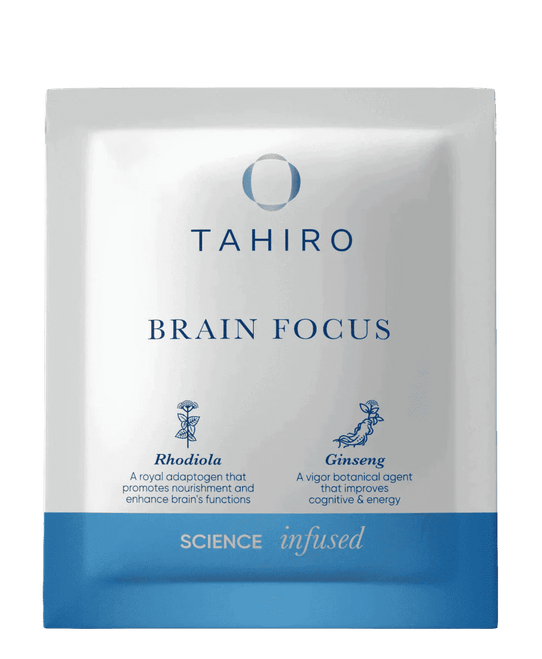Dementia is a general term for loss of memory and other mental abilities, which is severe enough to interfere with daily life. It’s caused by physical changes in the brain. Alzheimer’s disease is the most common type of dementia, but there are many different types. This article will help you learn about the types of dementia.
What is dementia?
Dementia is a general term for an impairment of cognitive function, which is severe enough to interfere with a person’s daily life. It affects memory and thinking, and also has an impact on social and communication abilities. People with dementia often have memory loss, but there are also other signs of dementia.
Dementia is not a disease, but rather a group of symptoms. There are many different diseases that can cause dementia.
What are the signs and symptoms of dementia?
People with dementia may have problems with one or more of the following:
- Memory
- Problem-solving
- Attention and focus
- Planning and organizing
- Language
- Motor skills and coordination
- Staying oriented (knowing where they are, what day and time it is, and who the people around them are)
It’s also common for people with dementia to experience other symptoms related to changes in brain function, including depression, anxiety, agitation, paranoia, and hallucinations.Although it does become much more common as people get older, dementia is a medical condition, not a normal part of aging. Some minor issues with memory are considered to be normal for seniors – for example, forgetting where you put your keys or forgetting a word from time to time.However, dementia is not considered to be normal. In fact, many people live into their 80s and beyond without ever developing dementia. This constellation of symptoms indicates an underlying disease process in the brain.
What causes dementia?
Dementia is caused by a deterioration of the brain. There’s generally a loss of brain cells, and/or a loss of the connections between brain cells. In most cases, this loss is progressive, meaning that it gets worse over time. However, there are certain reversible causes of dementia, which can get better with the right medical treatment. Dementia is a constellation of symptoms, not a disease in and of itself. When a person shows signs of dementia, doctors will go through a diagnostic process to determine the cause.
How many types of dementia are there?
There are over a hundred different conditions that can cause dementia or dementia-like symptoms. However, most people with dementia have one of the four most common causes, which are Alzheimer’s disease, vascular dementia, dementia with Lewy bodies, and frontotemporal dementia.
Common causes of dementia
Alzheimer’s disease
Alzheimer’s disease is the most common type of dementia, affecting more than half of all patients. In people with Alzheimer’s disease, certain abnormal proteins build up in the brain in various locations. Certain protein fragments build up between brain cells; these are known as amyloid (or beta-amyloid) plaques. A protein called tau also builds up inside brain cells, forming long protein chains known as tangles. The plaques and tangles interfere with brain function, and can cause the death of brain cells.
It’s still not known why some people develop Alzheimer’s disease, while others do not. However, some risk factors have been discovered. Researchers believe that genetics play a significant role in determining a person’s risk for developing Alzheimer’s disease. In addition, lifestyle factors like a lack of exercise, smoking, and a lack of sleep increase the risk.
Vascular dementia
The second most common type of dementia is vascular dementia. This type is caused by reduced blood flow to the brain. Any condition that causes damage to blood vessels can lead to vascular dementia. Some common examples include high blood pressure, diabetes, high cholesterol, and smoking. People who have strokes can also develop vascular dementia.
The symptoms of vascular dementia are similar to those of Alzheimer’s disease, and it can be very difficult to tell the two conditions apart. However, vascular dementia tends to cause more cognitive issues, like slowed thinking, problems focusing and concentrating, and trouble with problem-solving. Although memory loss can certainly also occur, it tends to be less prominent in those with vascular dementia than in those with Alzheimer’s disease.
Dementia with Lewy bodies
In this form of dementia,Lewy bodiesform inside brain cells. These are clumps of a misfolded protein called alpha-synuclein.
Along with changes in thinking and memory, people who have dementia with Lewy bodies (DLB) can sometimes have hallucinations. They may also have difficulty with body movements, such as rigidity, slow movements, tremors, and difficulty walking.
These movement symptoms are similar to those seen in Parkinson’s disease. In fact, in their advanced stages, DLB and Parkinson’s disease are indistinguishable from each other.
Frontotemporal dementia
This type of dementia is caused by changes in the brain’s ability to process certain proteins, causing abnormal clumps of protein to build up inside brain cells. There are a few different variants, which are caused by the buildup of different proteins.
The buildup of proteins leads to a loss of brain volume, particularly in the frontal and temporal lobes of the brain (the front and sides of the brain). Frontotemporal dementia was formerly referred to as Pick’s disease, and this term is still sometimes used.
People with frontotemporal dementia tend to be diagnosed at somewhat younger ages than those with other types. This is the second most common cause of dementia in people under age 65. In general, the dominant symptoms are changes in behavior, emotions, and language.
Mixed dementia
It’s possible for a person to have more than one cause of dementia at the same time. This is known as mixed dementia, and it’s not uncommon. For example, autopsy studies have shown that 22%Mixed Dementia: A Review Of The Evidence - Pmc of people with dementia had both Alzheimer’s disease and vascular dementia. Dementia with Lewy bodies can also coexist with Alzheimer’s disease. About half of all people who have DLB also have beta-amyloid in their brains.
Because mixed dementia is common, this can make diagnosing the cause of a particular case of dementia more challenging. The symptoms of different types of dementia can also overlap quite a bit, making the diagnosis even more difficult.
Dementia caused by brain damage
Traumatic brain injury (TBI) has also been linked to the development of dementia. People who experience repeated episodes of TBI, such as football players and boxers, are at the greatest risk for this.
There has been some concern that people who experience a single TBI may be at an increased risk for dementia compared with the general population, but a careful analysis of the scientific literature indicates that a single TBI doesn’t appear to significantly increase the risk. However, those who experience severe or repeated TBIs are more likely to later develop dementia.
Dementia caused by other diseases
Dementia can also be a symptom of various conditions that affect the brain. For example, Parkinson’s disease commonly causes dementia in its later stages. Many other neurological conditions can also cause dementia, including Huntington’s disease, Creutzfeldt-Jakob disease, and multiple sclerosis.
In people with alcoholism, alcohol-related damage to the brain accumulates over time. This can lead to symptoms of dementia, and is referred to as alcohol-related brain damage (ARBD). People with alcoholism may also experience severe nutritional deficiencies that can cause dementia-like symptoms.
Reversible causes of dementia
Dementia is most commonly irreversible once the disease process has started. Although treatments may be able to slow down the progression of the disease, there’s generally no known way to restore lost brain function.
However, certain potentially treatable conditions can also cause dementia-like symptoms. These include:
- Infections of the central nervous system
- Thyroid abnormalities
- Abnormal levels of certain minerals in the blood (including sodium and calcium)
- Low vitamin B1, B6, or B12 levels
- Bleeding inside the skull, which can occur after a fall
- Brain tumors
- Certain medications
- Reversible causes of dementia are uncommon, but it’s important to check for these conditions as part of the diagnostic process.
Reversible causes of dementia are uncommon, but it’s important to check for these conditions as part of the diagnostic process.
Are the symptoms the same for all types of dementia?
In general, the signs and symptoms of dementia are similar, no matter what the cause is. There are some differences that may be seen between different diseases. For example, people with vascular dementia tend to have more cognitive issues (such as slowed thinking and trouble with problem solving), while people with Alzheimer’s disease tend to have more memory loss.
However, the symptoms of dementia overlap considerably between different diseases, and it’s not possible to definitively distinguish different types of dementia solely based on the symptoms. Testing, such as blood tests and imaging studies, is needed to determine what disease is causing a particular patient’s dementia.








